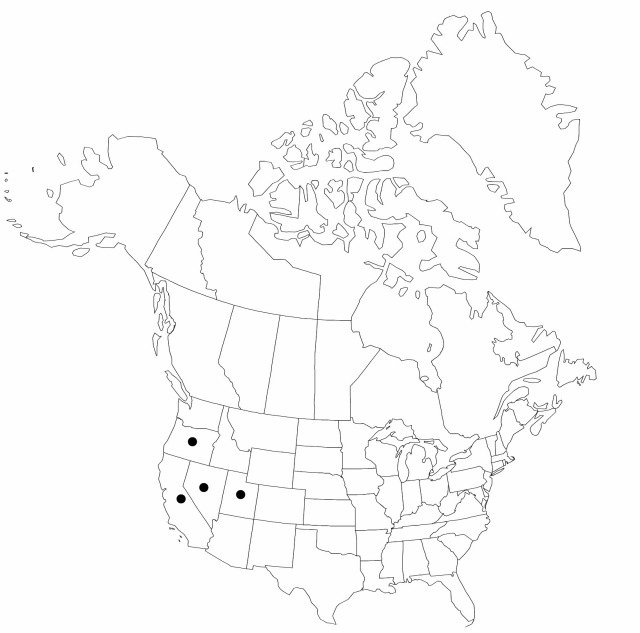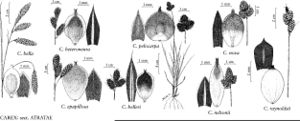Carex heteroneura
in S. Watson, Bot. California 2: 239. 1880.
Plants cespitose. Culms to 25–60(–100) cm, distally smooth or finely scabrous. Leaves 2–5 mm wide. Inflorescences: proximal bracts shorter than or exceeding inflorescences; spikes oblong or elongate, cylindric or clavate, 7–27 × 5–7 mm; lateral 2–4(–6) spikes pistillate, proximal ones usually erect, occasionally spreading or pendent, separate, pedunculate, distal ones overlapping, erect, contiguous, short-pedunculate; terminal spike gynecandrous, 1/3–2/3 staminate flowers, rarely staminate, sometimes appearing staminate due to fallen terminal perigynia. Pistillate scales dark brown to black, margins hyaline, lanceolate, typically shorter and narrower (equaling or slightly longer) than perigynia, midvein lighter colored than body, conspicuous, frequently raised, prominent, apex acute to short-mucronate. Perigynia ascending, pale green or pale yellow, veinless or obscurely veined, ovate, orbicular or obovate, 2.5–3.5 × 1.75–2.5 mm, apex abruptly beaked, smooth; beak 0.3–0.5 mm, shallowly or deeply bidentate, smooth. Achenes filling proximal 1/2 or less of perigynia.
Phenology: Fruiting Jun–Sep.
Habitat: Stream margins in open forests, moist meadows
Elevation: 2000–3000 m
Distribution

Calif., Nev., Oreg., Utah.
Discussion
Carex heteroneura is variable, especially in the size and shape of the lateral spikes, size and color of perigynia, and length of pistillate scales. The staminate terminal spike of the type is unusual and unrepresentative of the majority of the plants to which the name is applied; intermediate forms exist. It is not surprising that Boott believed the specimens he recognized as C. heteroneura were distinct from those he named in the same publication as C. atrata var. erecta. A. Cronquist (1969), among others, applied the name C. atrata var. erecta broadly to include both C. heteroneura and C. epapillosa. Some intermediates between C. heteroneura and C. epapillosa are found in California, Nevada, and Utah; the vast majority of the specimens can be determined.
Selected References
None.
